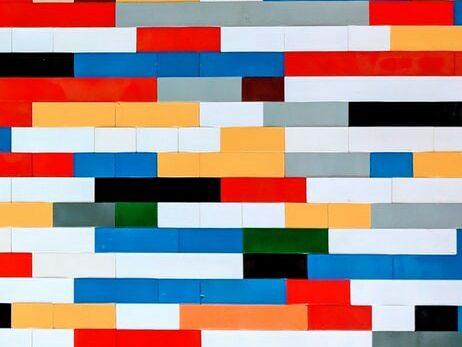How we learned to play as kids influences how we learn as adults.

There is a world at play just beyond the work. I know because I traverse this space multiple times a day as I step to and from my desk.
Yesterday morning, a LEGO brick in my bare foot. Today, multiple blocks in both feet. I really must pay better attention to where I’m going.
The thing about having LEGO bricks dug into your feet is that that’s as far as you’re going at the moment. And while my go-to-reaction would be to get upset, today I sat down and looked at my son’s world scattered about the floor and furniture just beyond my desk. It’s a landscape I’ve seen (and stepped on) a million times, and I am ashamed that I see it for what it really is far too seldom.
It’s almost as though I can see his thought patterns, the narrative, the freedom and chaos and the planetary order beginning to take shape.
This landscape, these bits of plastic and metal, are conduits to his imagination, to the expanse of his creative thinking, to the grounding of his problem solving.
Play is a tether to that thing that most adults dismiss: the element of fulfillment. Each moment of play creates space to unpack curiosity, to build complex worlds from countless simple pieces. To imagine what strange faraway destinations may exist out there and to design a way to get to them.
Adults have largely forgotten about the varied utilities of play.
Play stimulates ideas and clears new pathways between cause and effect.
It responds to changing rules and parameters.
It stimulates new ways of looking and interacting with those in the space around the learner.
Play opens up new ways of making discoveries and experimentation.
It builds cultures and worlds.
Play settles disputes.
It strategizes how to develop the most properties on the boulevard.
It helps us learn to lose.
It strives to win.
And it helps to combat some of the greatest villains of productivity: boredom, misalignment, and complacency.
Play grows us, challenges us, and makes us think on our feet. Even when those feet are stepping on LEGO.
As children, play was our manner for learning. And just as I create the literal space for my son’s curiosity here beside my desk, so too must leaders in business, education, and culture leave room where people are free to play with exploration, experimentation, trial, and error. This is discovery.
With the right amount of space, leaders and their teams can make breakthroughs and build impressive new tools and design new worlds and new rules that defy what was previously thought impossible.
There is a world at play just beyond the work.
